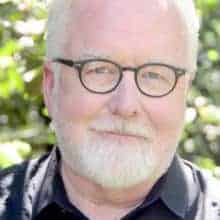
If Charlotte, North Carolina, is ever going to increase economic mobility for young people currently living in poverty, we are going to have to collaborate in ways that are uncommon, unfamiliar, and uncomfortable.
As Charlotte Works’ in-school youth provider since 2012, MeckEd has provided over 13,000 Charlotte-Mecklemburg Schools (CMS) high school students attending high-need schools with college and career-readiness opportunities likd job shadows, career roundtables, college visits, and internships. We have provided over 1,000 paid internships through partnerships with 150+ Charlotte area businesses and industries.
We have been able to remove obstacles to opportunity by providing transportation, career clothing, social skills training, food, child care, career equipment, books, medical costs, and tuition for certification programs. It’s not enough.
In a bold experiment designed to clear a path to a bright future for youth in four CMS high schools, MeckEd has partnered with the Charlotte Area Fund (CAF) to address root causes of generational poverty and create a systemic approach to change.
In addition to all the supports provided to students through MeckEd’s Career Pathways program, the CAF has provided need-based resources for several of the families of young people in our program. These resources for expenses like rent, car repairs, or medical expenses may appear as a “band aid,” but they are a strategic attempt to liberate students so they can focus on their own path forward.
Most recently, the CAF stepped up again to support our ongoing efforts to transform lives. The CAF recognizes that you can’t have economic mobility without mobility. Transportation remains a significant barrier to success, particularly for our Career Pathways participants who struggle to get back and forth to internships, job shadows, or simply to and from our offices for soft skills training.
In the summer, many of the middle school students MeckEd serves through enrichment programs need transportation. We wondered aloud about purchasing a passenger van to help get our program participants where they need to be. This need, like the need to provide family supports in addition to direct services to young people, resonated with the leadership of the CAF. In fact, they donated the funds that enabled MeckEd to purchase and insure a 12-passenger van.
MeckEd and the CAF are committed to achieving shared outcomes through smart strategic partnerships. Intentional and systemic collaborations are a step in the right direction, but they are not easy to orchestrate. First, we need to align and coordinate our efforts to increase our individual and collective impact. To effectively do so, we believe Charlotte needs to invest in an asset map that would enable program providers, nonprofits, and funders to answer a simple but elusive question: Who is doing what, where?
Additionally, if collaboration is to become normalized, it will need to be supported with evidence, which can only come from gathering, analyzing, and sharing best practices and impact data. A research budget should be built into every collaboration and supported through partnerships with public and private colleges and universities and well as with public and private funding.
Finally, all of us in the nonprofit community recognize that there are costs beyond the costs associated with operating individual organizations that are associated with the collaboration itself. Nonprofits should be able to cross lanes on purpose without getting hurt financially.
All of our children, especially those who need us the most, deserve a fair shot at a bright future. It’s time to lean in, open our minds to what is possible, and provide the tools, resources, and supports necessary to exponentially increase our individual and collective impact. Why? Because we are better together.
Recommended reading



